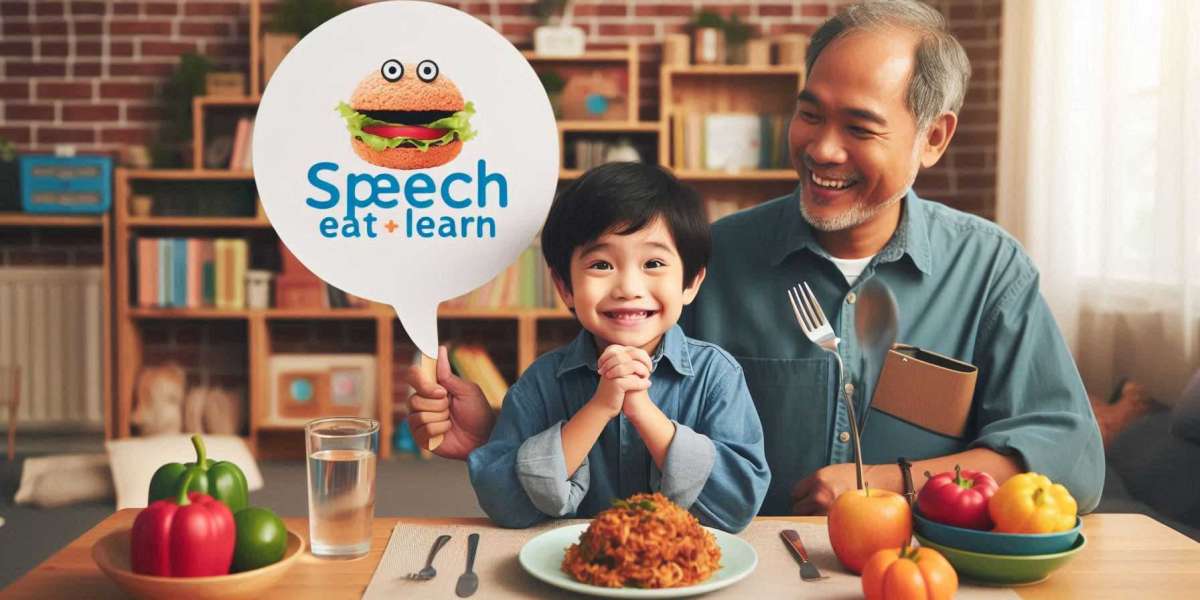Speech Eat Learn is a specialized approach that supports children facing speech, eating, and learning challenges. This comprehensive therapy combines speech therapy techniques with strategies to improve feeding and oral-motor skills, which often overlap in young children. For kids with speech delays, feeding issues, or social communication difficulties, this integrated approach offers a holistic path to improved speech and eating habits. The program’s emphasis on both communication and feeding skills helps children become more confident, capable, and prepared to engage with the world around them.
| Aspect | Details |
|---|---|
| Program Focus | Combined speech and feeding therapy for children. |
| Who It’s For | Children facing speech delays, feeding difficulties, or developmental language disorders. |
| Key Benefits | Supports both communication and oral-motor skills, enhancing speech clarity and improving feeding abilities. |
| Notable Providers | SpeechLearn, TLC Speech Therapy, Expressions4Kids |
| Core Skills Developed | Articulation, language processing, oral-motor strength, feeding mechanics, and confidence in communication. |
| How Sessions Work | Therapists engage children with interactive activities like games, role-playing, and exercises for chewing, swallowing, and sound articulation. |
| Therapist Credentials | Licensed speech-language pathologists (SLPs) trained in feeding therapy and oral-motor development. |
| Session Structure | Sessions range from 30 to 60 minutes, incorporating play-based methods tailored to each child’s unique needs. |
| Parental Involvement | Parents often participate in sessions to reinforce learning at home, creating a supportive environment for children. |
| Long-Term Goals | Building effective communication skills and positive mealtime experiences to boost social interaction and confidence. |
Why Speech and Feeding Therapy Go Hand-in-Hand
Speech and feeding abilities share the same muscles and neurological pathways, which is why speech and feeding difficulties often co-occur. Children with speech delays may experience oral-motor challenges that affect both speaking and eating. Addressing these skills together through programs like Speech Eat Learn allows for efficient, effective improvement in both areas, supporting children’s overall development. Therapy focuses on exercises and techniques to strengthen the muscles needed for speech clarity and safe, effective eating.
Core Areas Addressed by Speech Eat Learn
Speech Eat Learn emphasizes three main developmental areas:
- Speech Skills: This includes articulation, fluency, and social communication, where therapists guide children in sound production, sentence building, and interaction skills.
- Feeding and Oral-Motor Skills: These skills focus on strengthening muscles involved in chewing, swallowing, and safe eating. Techniques may include jaw exercises, tongue coordination, and bite control.
- Cognitive Learning Skills: Through structured activities, children learn to process language, follow instructions, and develop attention skills, which are essential for both social and academic success.
Techniques Used in Speech Eat Learn Therapy
Therapists use various techniques in Speech Eat Learn sessions to engage children and address both speech and feeding issues. These may include:
- Play-Based Speech Therapy: Games and storytelling to help children practice articulation in a fun, low-pressure environment.
- Oral-Motor Exercises: Chewing exercises, jaw strengthening, and tongue coordination drills help improve both speech and eating abilities.
- Modeling and Imitation: Therapists model words and sounds, encouraging children to repeat and develop their speech skills.
- Feeding Practice: Using sensory-rich foods to stimulate eating skills, such as introducing new textures to encourage chewing or swallowing confidence.
How to Select the Right Speech Eat Learn Program for Your Child
Selecting a program with experienced therapists who understand the connection between speech and feeding skills is crucial. Look for licensed speech-language pathologists trained in pediatric therapy, and ensure that the program offers resources or guidance for parents. Researching providers can help parents find reputable services that suit their child’s unique needs, with positive client feedback and a focus on personalized, engaging therapy sessions.
| Criteria for Choosing a Provider | Details |
|---|---|
| Professional Credentials | Ensure the provider employs licensed SLPs with pediatric feeding therapy experience. |
| Session Structure | Look for a balance of speech and feeding exercises in each session, tailored to individual progress. |
| Parent Resources | Some programs offer resources or parent training to reinforce progress at home. |
| Cost and Accessibility | Compare pricing models and schedule flexibility to find an affordable, convenient option. |
| Therapist Reviews | Check client feedback to assess the provider’s reputation for effective and engaging sessions. |
Leading Providers of Speech Eat Learn Therapy
SpeechLearn
SpeechLearn offers specialized sessions combining speech and feeding therapy, making it ideal for children with developmental delays affecting both areas. Their certified therapists design sessions that balance articulation and oral-motor skills, keeping children engaged and motivated.
Expressions4Kids
Known for their family-centered approach, Expressions4Kids focuses on creating an enjoyable learning environment for children. Their program includes activities that improve speech clarity and encourage positive mealtime behaviors, giving parents tools to support their child’s progress at home.
TLC Speech Therapy
TLC Speech Therapy provides interactive, structured sessions that incorporate both speech and feeding development. Their experienced therapists use play-based methods to ensure that children feel comfortable, which fosters faster progress in both areas.
Integrating Parent Involvement in Speech Eat Learn Therapy
Parents play a crucial role in the success of Speech Eat Learn therapy. By learning techniques from therapists, they can help reinforce their child’s progress outside of sessions. Many programs encourage parents to observe sessions or participate in exercises, empowering them to create supportive routines at home. This involvement not only accelerates improvement but also builds children’s confidence as they see consistent support from their families.
The Role of Technology in Speech Eat Learn Programs
Online tools have made Speech Eat Learn therapy more accessible to families. Digital platforms allow therapists to connect with clients remotely, offering interactive video sessions that engage children in speech and feeding exercises. For families without local access to specialized therapy, online Speech Eat Learn programs provide a valuable alternative, with structured, play-based sessions designed to keep kids motivated. Many programs also offer progress-tracking tools, helping therapists and parents monitor improvements over time.
Supporting Social and Academic Skills Through Speech Eat Learn
Speech Eat Learn therapy builds essential skills that extend beyond speech and feeding. Improving communication helps children develop confidence in social settings, whether they’re engaging with peers or participating in class. These skills support academic success, as children who can express themselves clearly are more likely to engage in school activities. Speech Eat Learn therapy thus serves as a foundation for both social and educational growth, giving children the tools they need to succeed.
Common Myths About Speech Eat Learn Therapy
Several myths surround speech and feeding therapy programs. One common misconception is that feeding therapy is only for severe cases. However, many children with minor speech delays can benefit from oral-motor support, which enhances speech clarity. Another myth is that only young children can benefit from integrated therapy. In reality, kids of all ages facing speech or feeding challenges can improve through Speech Eat Learn programs, as therapists tailor sessions to suit each child’s developmental stage.
FAQs
What age group benefits most from Speech Eat Learn therapy?
Speech Eat Learn therapy is effective for children of various ages, as therapists tailor activities to the child’s specific developmental needs.
Does Speech Eat Learn therapy help with picky eating?
Yes, feeding therapy techniques can encourage children to try new textures and foods, which can help overcome picky eating habits.
How often should a child attend Speech Eat Learn sessions?
The frequency varies, but most children attend weekly sessions. Therapists can recommend a schedule based on the child’s progress and goals.
Is parental involvement necessary in Speech Eat Learn therapy?
Parental involvement greatly enhances progress. Many programs encourage parents to observe or participate in sessions to reinforce learning at home.
How long does each session last?
Sessions typically last 30 to 60 minutes, depending on the child’s needs and the program structure.
Can Speech Eat Learn therapy be done online?
Yes, many providers offer online Speech Eat Learn therapy, making it accessible for families without local resources.
Suggested Links
Reference reputable providers such as SpeechLearn and Expressions4Kids for more details on their services and programs.








